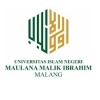CONDUCTING ENGLISH LEARNING ACTIVITIES BY IMPLEMENTING TELEGRAM GROUP CLASS DURING COVID-19 PANDEMIC
Abstract
Full Text:
PDFReferences
Burston, J. (2013). Mobile-assisted language learning: A selected annotated bibliography
of implemen tation studies 1994–2012. Language Learning & Technology, 17(3):
–225. Retrieved from http://llt.msu.edu/issues/october2013/burston.pdf
Debele, E. T., and Kelbisa, E. M. (2017). The role of active learning methods for classroom participation: the case of first year students of sociology in Samara University. IOSR Journal of Humanities and Social Science, Vol. 22, Issue 7, 2017.
Day, C. (1999) Developing Teachers: the challenges of lifelong learning. London: Falmer Press.
Dumiyati, Wardhono, Agus & Nurfalah, Edi. (2017). Pengembangan Perangkat Model Pembelajaran English For Specific Purpose (Esp) Berbasis ICT. Makalah. Dalam: Seminar Nasional Hasil Penelitian dan Pengabdian kepada Masyarakat II Universitas PGRI Ronggolawe Tuban, 23 September.
Fennessy, D. (1998) Teachers’ Perceptions of the Effects of In-service Education and School Based Support on their Teaching, paper presented at the BERA Annual Conference, Queen’s University of Belfast, 27-30 August
Ha Le, Jeroen Janssen & Theo Wubbels. (2018). Collaborative learning practices: teacher and student perceived obstacles to effective student collaboration, Cambridge Journal of Education, 48:1, 103-122, DOI: 10.1080/0305764X.2016.1259389
Lixun, Wang (2017) Public Lecture Series 2017: The English You Didn’t Learn in School
V, Mobile Assisted Language Learning. Retrieved from
https://www.ied.edu.hk/ele/pls/spring 2017/seminar4.pdf on June 8th 2017.
Markova, Tatiana, Glazkova, Irina & Zaborova, Elena. (2016) Quality Issues of Online Distance Learning. 7th International Conference on Intercultural Education “Education Health and ICT for a Transcultural World”,15-17 June, 685-691.
Oliveira, L. C. (2015). A language-based approach to content instruction (LACI) for English language learners. Journal of Language and Literacy Education. Retrieved from https://www.google.com/url?sa=t&source=web&rct=j&url=http://jolle.coe.uga.edu/wp-content/uploads/.
Sandholtz, J.H. (2000) Interdisciplinary Team Teaching as a Form of Professional Development, Teacher Education Quarterly, 27(3), pp. 39-54.
Saud, Udin Syaifudin., (2008). Inovasi Pendidikan, Bandung: Alfabeta
Wardhono, Agus & Spanos, Stephen. (2018). Assessing English Speaking and Listening Skills with The Mobile Application Telegram. Indonesian EFL Journal: Journal of ELT, Linguistics, and Literature,Volume 4, Issue 2: 147-174.
Wringley, H.S. (1998). Knowledge in Action: The Promise of Project-Based Learning. http://www.nesall.net/?id=384.
DOI: https://doi.org/10.18860/jeasp.v3i2.11122
Refbacks
- There are currently no refbacks.

This work is licensed under a Creative Commons Attribution-ShareAlike 4.0 International License.







Editorial Office:
Pusat Pengembangan Bahasa
Program Khusus Pengembangan Bahasa Inggris (PKPBI)
Universitas Islam Negeri Maulana Malik Ibrahim Malang
Gedung C lantai 1
Jl. Gajayana No 50 Kota Malang, Jawa Timur, Indonesia
Kode Pos 65144, Telp/Fax : (0341) 570872
Email: jeasp@uin-malang.ac.id
JEASP : Journal of English for Academic and Specific Purposes is licensed under a Creative Commons Attribution-ShareAlike 4.0 International











